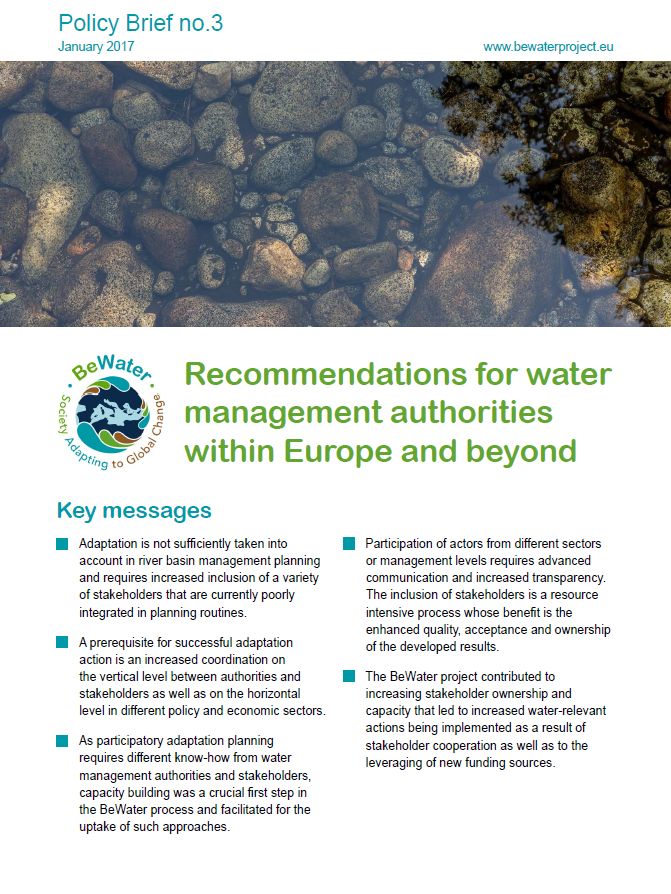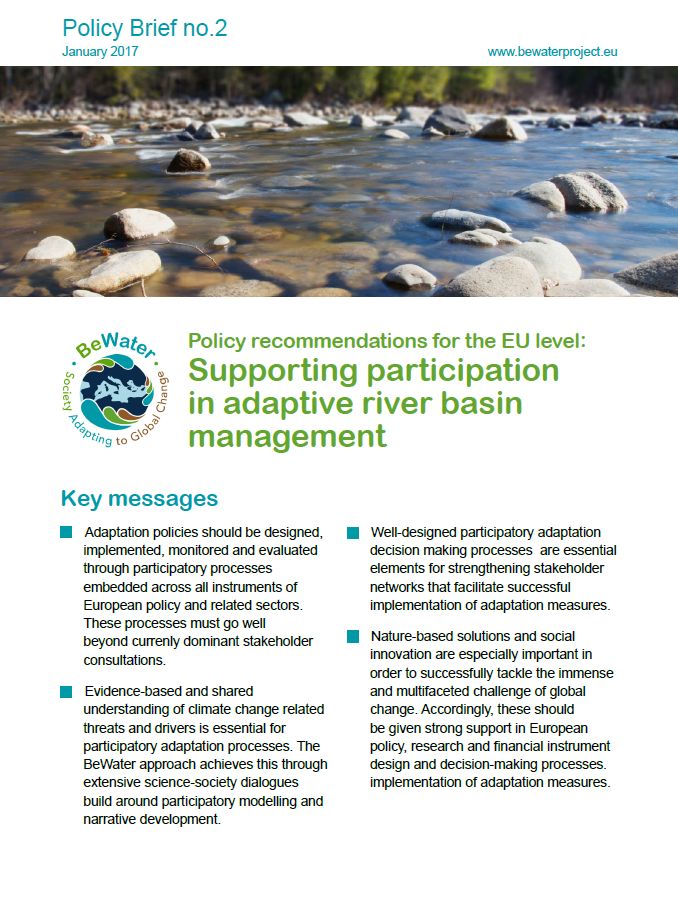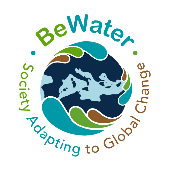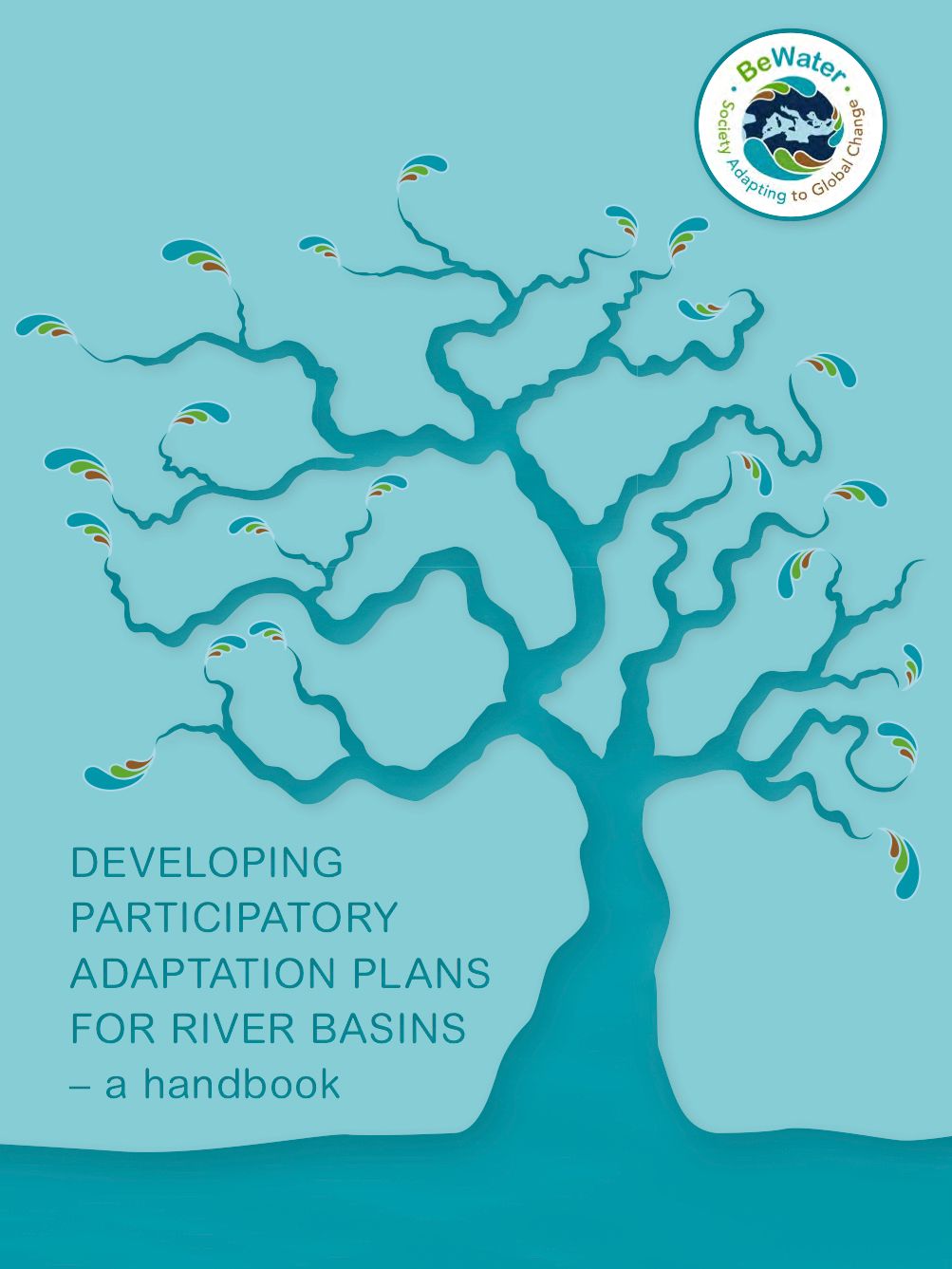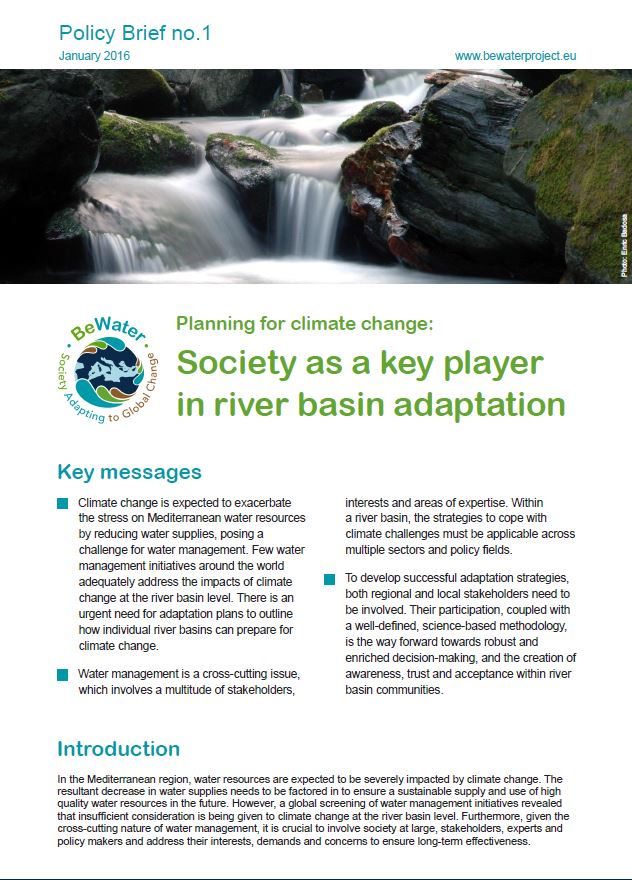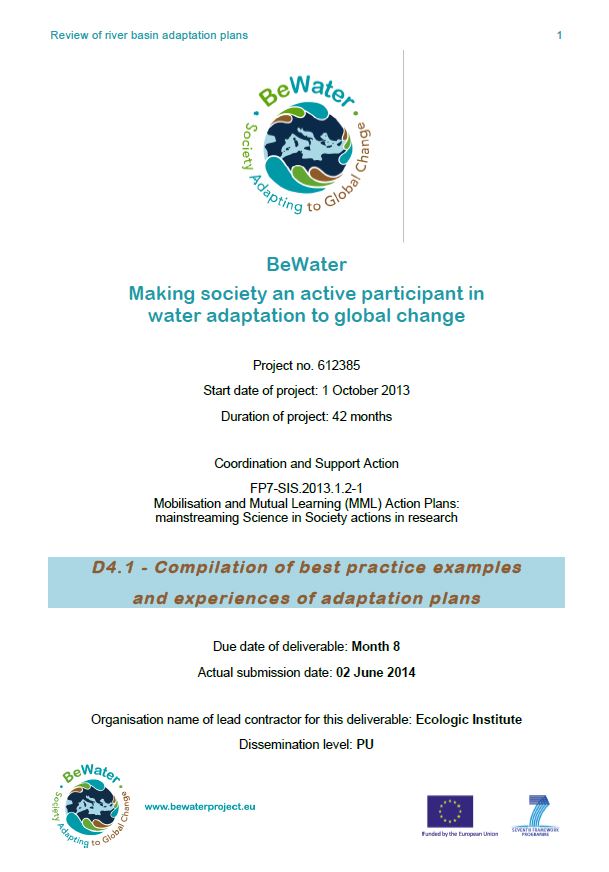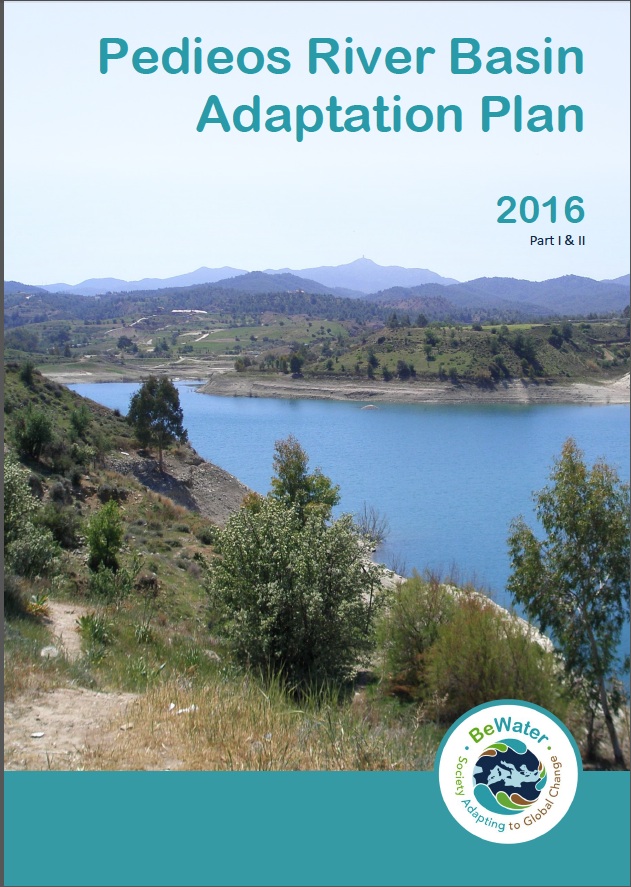
Four River Basin Adaptation Plans
- Publication
- Citation
BeWater (2016). Four River Basin Adaptation Plans. Deliverable D4.3, BeWater, FP7 project no. 612385 -SIS.2013.1.2-1 European Commission, 543 pp.
Citizens from around the Mediterranean have participated in adaptation planning for the management of their local river basins. Based on a novel approach developed over the course of the EU-funded BeWater project, stakeholders from four case study river basins were engaged in a collaborative process with experts and policy makers to draft River Basin Adaptation Plans.
With future climate change projections for the Euro-Mediterranean region estimating an increase in water scarcity and droughts, substantial socioeconomic losses and environmental impacts are expected to significantly affect river basin dwellers. Sustainable water management strategies are needed urgently. To maximise their effectiveness, local communities must engage with such strategies and play an active role in their development.
Over the past three years, the BeWater Project has been working with communities towards the collaborative development of adaptive water management approaches at the river basin scale in the Mediterranean region. More specifically, the project aimed to develop a River Basin Adaptation Plan in each of the four case studies: Tordera (Spain), Pedieos (Cyprus), Rmel (Tunisia) and Vipava (Slovenia).
While these four basins differ in environmental, socio-economic and political conditions, they share a number of common challenges, in particular water quantity and water quality. Importantly, however, the basins identified different pathways to address these challenges, with a total of 102 water management options identified for consideration in the planning process. Ecologic Institute was also part of this collaboration.
The Adaptation Plans are the result of intensive collaboration between scientists and local stakeholders during interactive workshops, consultations and interviews. With the main emphasis being on river basin management under global change, the plans contain information on individual water management options, how these could be combined and whether there are potential synergies and conflicts between options. The plans also include information on costs, responsibilities and how the effectiveness of the water management options could be monitored.
The publication of the Adaptation Plans marks a major milestone in the BeWater project. Next steps include dissemination activities focussing on the plans themselves and the participatory process involved, and raising interest for policy uptake in locally relevant arenas, including the organisation of a local policy forum in each of the four river basins in early 2017.
The River Basin Adaptation Plans and the participatory approach used to develop them will be presented in a Brussels event in early 2017. A River Basin Adaptation Conference will take place in Slovenia in March 2017, sharing science-society interactions as developed within the BeWater project and other initiatives.




